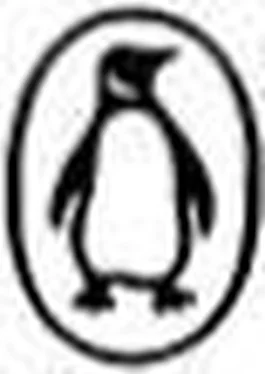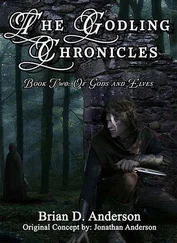Davidson, H. - Gods and Myths of Northern Europe
Здесь есть возможность читать онлайн «Davidson, H. - Gods and Myths of Northern Europe» весь текст электронной книги совершенно бесплатно (целиком полную версию без сокращений). В некоторых случаях можно слушать аудио, скачать через торрент в формате fb2 и присутствует краткое содержание. Жанр: Старинная литература, на английском языке. Описание произведения, (предисловие) а так же отзывы посетителей доступны на портале библиотеки ЛибКат.
- Название:Gods and Myths of Northern Europe
- Автор:
- Жанр:
- Год:неизвестен
- ISBN:нет данных
- Рейтинг книги:5 / 5. Голосов: 1
-
Избранное:Добавить в избранное
- Отзывы:
-
Ваша оценка:
- 100
- 1
- 2
- 3
- 4
- 5
Gods and Myths of Northern Europe: краткое содержание, описание и аннотация
Предлагаем к чтению аннотацию, описание, краткое содержание или предисловие (зависит от того, что написал сам автор книги «Gods and Myths of Northern Europe»). Если вы не нашли необходимую информацию о книге — напишите в комментариях, мы постараемся отыскать её.
Gods and Myths of Northern Europe — читать онлайн бесплатно полную книгу (весь текст) целиком
Ниже представлен текст книги, разбитый по страницам. Система сохранения места последней прочитанной страницы, позволяет с удобством читать онлайн бесплатно книгу «Gods and Myths of Northern Europe», без необходимости каждый раз заново искать на чём Вы остановились. Поставьте закладку, и сможете в любой момент перейти на страницу, на которой закончили чтение.
Интервал:
Закладка:
The Goddesses
There were also certain mighty goddesses. Frigg was the wife of Odin, and like him knew the future of gods and men. Freyja was Freyr’s twin sister, and the most renowned of all the goddesses; she helped in affairs of love and had some power over the dead. She drove in a chariot drawn by cats. Freyja was said to have had a husband called Od, who left her to weep tears of red gold at his disappearance. Skadi, the wife of Njord, came from the mountains to marry the sea god. The marriage was not a success, because neither was willing to live away from home, and in the end Skadi went back to the hills, where she went on skis and hunted with the bow. Bragi’s wife was Idun, who had one important part to play: she guarded the apples of immortality, on which the gods feasted in order to keep their perpetual youth. Other goddesses are little more than names. Thor’s wife, Sif, had wonderful golden hair. Balder’s wife was Nanna, and Loki’s Sigyn, while Gna and Fulla are mentioned as servants of Frigg. There is also Gefion, to whom unmarried girls went after death.
The Wooing of Gerd
Besides these, we have the maiden Gerd, who was wooed by Freyr. She lived in the north, and he caught sight of her one day as he sat on Odin’s seat. The radiance from her white arms lit up the sky and the sea, and as he watched, Freyr was overcome by so intense a desire for her that he could neither eat nor sleep. At last he sent his servant Skirnir down to woo her, giving him his own sword and a horse for the journey. Gerd was at length persuaded to yield to Freyr’s wooing and to consent to meet him in nine nights’ time. It was on this account, we are told, that Freyr was without a sword when the last great battle of the gods came to be fought.
The Building of the Wall of Asgard
When the gods built Asgard, one of the giants, who was a great craftsman, offered to encircle it with a splendid wall, to keep out their enemies. If the wall were finished within the space of one winter, it was agreed that he should have the fair goddess Freyja as his reward, and the sun and moon as well. They thought that he could never complete the task and would pay his life as a forfeit, but he was helped by a marvellous horse, Svaðilfari , who moved the stones for him and worked by night, doing twice as much as his master. Three days before the coming of spring the stronghold was nearly completed, and the gods were terrified at the thought of what they had promised. It was Loki who found a way out for them. He took on the form of a mare and whinnied at Svaðilfari , the great stallion, and lured him away. The unfortunate giant never finished the work, and when Thor returned from his travels he did not hesitate to slay him with his hammer. The meeting of the mare and Svaðilfari had one other important result: an eight-legged colt was born who became Sleipnir, the finest of all steeds, on which Odin himself rode.
The Binding of the Wolf
Other creatures said to be begotten by Loki on a giantess Angrboda were of less benefit to the gods. The most terrible was the wolf Fenrir, who was brought up in Asgard, but grew so huge and fierce that in the end only Tyr dared to feed him. He was so menacing that they knew he must be bound, but every fetter which they laid upon him was easily snapped. Finally, guided by the wisdom of Odin, the dwarfs forged a chain for him, made from the secret and impalpable things of the world – the roots of a mountain, the noise of a moving cat, and the breath of a fish. It seemed no more than a silken cord, yet no force could break it. The wolf thought it harmless, but he would not allow it to be laid upon him unless one of the gods placed a hand between his jaws as a hostage. Tyr alone was prepared to do this, and so the wolf was bound, the chain held, and the gods laughed – all but Tyr, who lost his hand.
Another of the monsters to whom Loki gave birth was the mighty serpent called Miðgarðsormr , the World Serpent. Odin flung it into the deep sea that encircled Midgard, and there it lies round the world, biting its own tail. As for Hel, Loki’s daughter, Odin sent her down into the realm of mist and darkness, Niflheim. There she rules a kingdom encircled by a high wall and secured by strong gates, and into it pass men who die of disease or old age.
3. Thor and the Giants
Outside Asgard there were other powers who possessed considerable strength and wisdom, and who had to be respected by the gods.
Thor’s Journey to Utgard
This is shown by the tale of how Thor himself was once outwitted and found his great might of little avail. He set out one day with Loki for a companion. When they stopped at a farm for food, Thor provided it himself by slaughtering the goats which drew him, so that they could be cooked and eaten. After the meal he spread out the bones on the goatskins, raised his hammer Mjollnir, and blessed them, whereupon the goats stood up, fully restored to life. The farmer’s son had however unthinkingly broken one of the leg-bones for marrow, and the goat to which it belonged was left lame. Thor’s anger was terrible to see, and the farmer in his panic offered him his two children, Thialfi and Roskva, to be his servants.
These four then went on into the land of the giants. They travelled all day through a mighty forest, and at night came to a huge building with a wide opening across one side. They groped their way in and lay down for the night, but before day came there was a great earthquake, and the building shook. In terror they moved down the hall, and found an opening leading into a passage on the right. Here they sat, terrified, while Thor guarded the entrance with his hammer, and all night long they could hear a great roaring noise outside.
When it grew light they ventured out, and found a huge giant lying not far away. They realized that the roaring was caused by his snores. Thor buckled on his belt of strength, but at that moment the giant rose to his feet, and so enormous was he that for once Thor was not prepared to swing his hammer. The giant said his name was Skrymir, ‘Big Fellow’, and he picked up what they had taken to be a building but now saw to be his glove, with the thumb sticking out on the right to make the side-passage in which they had sheltered.
The giant said they could journey together, and suggested that they should put all their provisions into one bag, which he carried. His great strides took him on ahead, and that evening they found him waiting under an oak. He lay down for a nap while they turned to prepare the supper. But when Thor tried to undo the bag, he could not unfasten the strap, strive as he would. At last in a fury he struck Skrymir on the head with his hammer. But the giant only opened his eyes and asked mildly if a leaf had fallen on his head. In the end they lay down without supper, and once more the noise of Skrymir’s snores filled their ears. Thor struck with his hammer a second time, but the only response from Skrymir was to ask whether an acorn had fallen on him. At dawn, when the giant still slept, Thor struck a third time, and this was so mighty a blow that the hammer sank in up to the handle. The giant then sat up and remarked that a bird seemed to have dropped something on him from the tree above. Then he took leave of them, warning Thor to be on his best behaviour when he reached the hall of Utgard, where he assured them there were plenty of fellows bigger even than himself. He strode off through the wood, and to their great relief they saw him no more.
They reached Utgard at midday, and found it no smaller than they had been led to believe. It was indeed so huge that they were able to get in by squeezing between the bars of the mighty gate. In the hall was the king, Utgard-Loki. When at last he noticed his puny visitors, he was not very complimentary in his welcome, but he inquired whether they had any special gifts which they could display before the company. Then followed a series of trials of strength at which Thor and his companions did not acquit themselves as well as might have been expected.
Читать дальшеИнтервал:
Закладка:
Похожие книги на «Gods and Myths of Northern Europe»
Представляем Вашему вниманию похожие книги на «Gods and Myths of Northern Europe» списком для выбора. Мы отобрали схожую по названию и смыслу литературу в надежде предоставить читателям больше вариантов отыскать новые, интересные, ещё непрочитанные произведения.
Обсуждение, отзывы о книге «Gods and Myths of Northern Europe» и просто собственные мнения читателей. Оставьте ваши комментарии, напишите, что Вы думаете о произведении, его смысле или главных героях. Укажите что конкретно понравилось, а что нет, и почему Вы так считаете.












